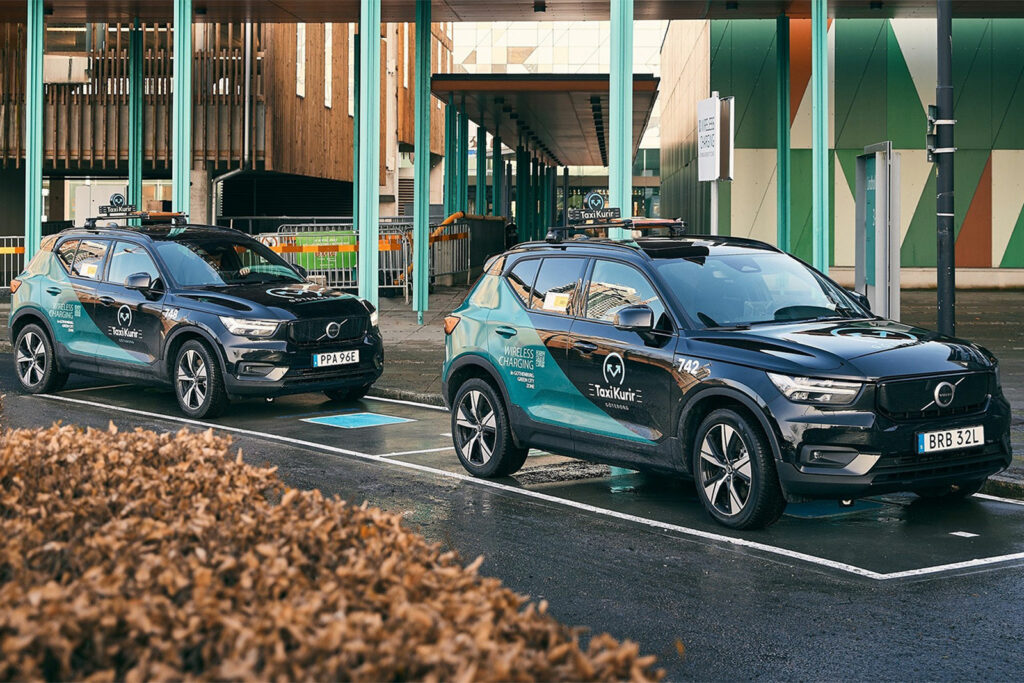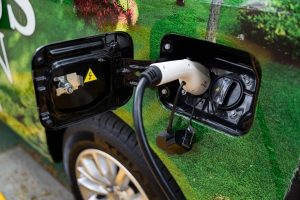
Volvo Cars Tests Wireless Charging Infrastructure in a Real Urban Environment

As part of the “Gothenburg Green City Zone” initiative, intended to achieve emission-free transportation by 2030, using the Swedish city as a testing ground, Volvo Cars will accelerate the technology and service development across electrification, shared mobility, autonomous driving, connectivity and safety.
This 2022, the company began a test plan with a new wireless charging technology, along with selected partners, evaluating its potential for future electric cars.
Over a three-year period, Cabonline, the Nordic region’s largest cab operator, will use a small fleet of fully electrified Volvo XC40 Recharge cars and charge them wirelessly at stations in Gothenburg, Sweden.
The charging stations used in the test are provided by Momentum Dynamics, a leading supplier of wireless electric charging systems. The power supply starts automatically when a compatible vehicle is parked on a charging platform embedded in the street, allowing drivers to conveniently refuel without leaving their car.
How does it Work?
According to information released by Volvo Cars, the charging station sends power through the platform, which is picked up by a receiver unit in the car. To easily align the car with the system, Volvo will use its 360-degree camera mechanism.
For the all-electric XC40 Recharge cars, the wireless charging power will be more than 40 kW, which will make delivery speeds about four times faster than a wired 11 kW AC charger and almost as fast as a wired 50 kW DC fast charger.
With this energy, Volvo cars will be able to drive for more than 12 hours a day and will travel 100,000 kilometers per year, which also makes this the first durability test of the company’s electrified cars under a commercial-use scenario.
In that regard, Mats Moberg, Head of Research and Development at Volvo Cars, noted that Gothenburg Green City Zone allows them to test exciting new technologies in a real-world environment and evaluate them over time for possible wider future introduction.
He said that testing these charging innovations together with selected partners is a good way to evaluate alternative energy supply options for future cars.





